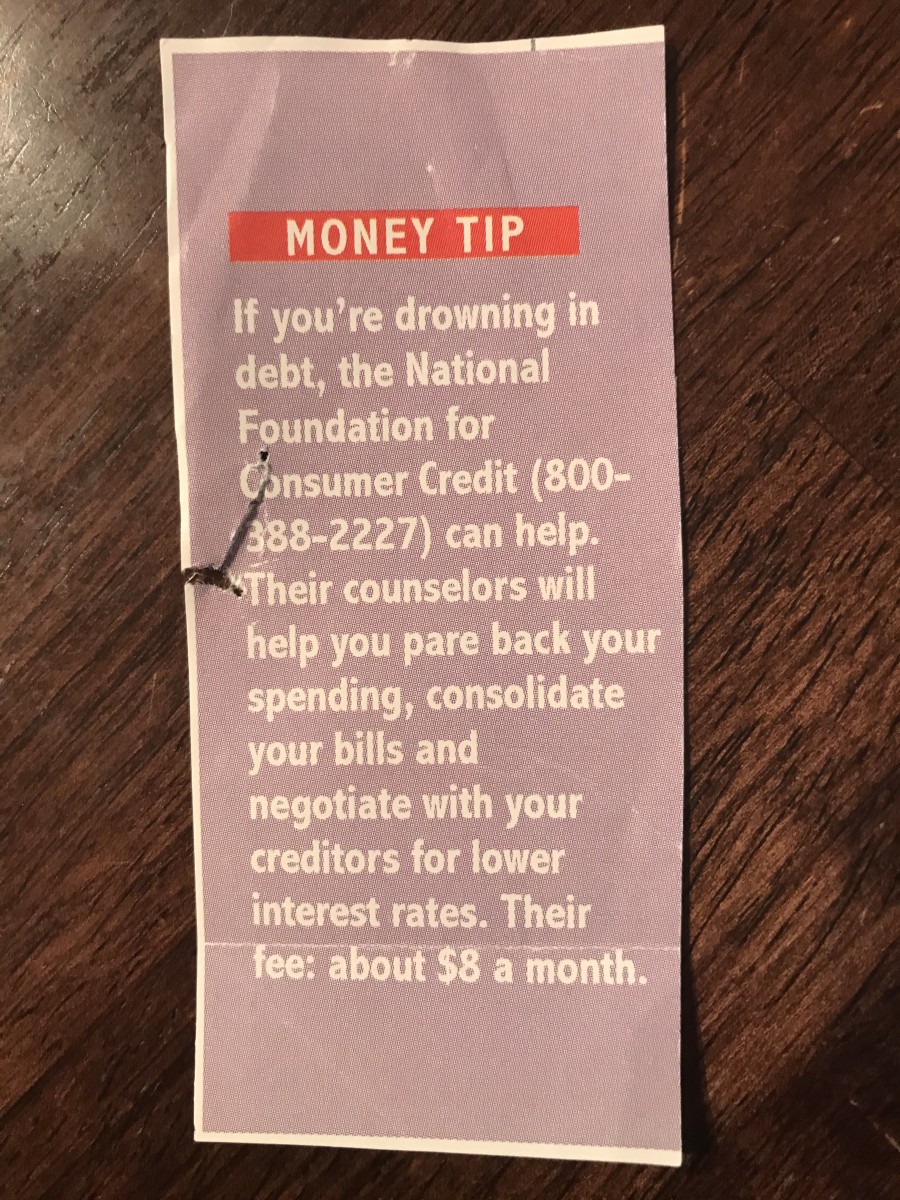Debt Management: How To Do It Right
Copyright: Leo J Quinn, Jr.
Got debt?
Chances are, you're doing what you can to pay it off, as quickly as possible. You want to be debt-free.
A worthy goal, to be sure.
But what do you do in the meantime?
Having a debt management plan is just as important as having a debt reduction plan. It can save you hundreds or thousands of dollars in interest, and maybe even reduce the total amount of time it takes for you to be come debt-free.
Here's how to do it right.
Promise yourself you won't take on any more debt. Put all your credit cards somewhere besides your wallet. One of my favorite spots is the freezer; by the time you thaw the cards to use them, you've probably changed your mind about your purchase. Why so drastic? Because you can't management your debt if you keep adding to it.
Now, you need to make a list of all the debts you have. Creating a chart or spreadsheet is probably the easiest way to sort all the vital information.
List the following:
* Creditor's name
* Principal currently owed
* Minimum payment
* Interest rate
* Contact phone number
* Website address with login information
Next, add any credit lines with zero balances to the above list. (I'll explain why later.) Fill in all the above information, except principal and minimum payment, of course.
Take your list and start calling each of your current credit card companies. Ask what their current offers are for balance transfers. Insinuate that you're closing your account for better offers elsewhere (because you certainly would move your balance in that case, right?).
Take notes on your chart or spreadsheet for each offer. Watch the fine print: ask if there are balance transfer fees, how long the lower rate period lasts, what happens to the transferred balance if you make a late payment, etc.
Be aware that a common gimmick now is to offer a very low rate for transferred balances with no fees, as long as you charge a certain amount each billing period, say $25, which is billed at a higher interest rate than your transferred balance. Since the credit card companies apply your payment to the lowest-rate balance first, you'll accrue the higher interest rate on the monthly charges until your transferred balance is paid off.
For example, say you transfer $5000 at 1.9%. The rate goes up in 6 months unless you charge at least $25 a month by the close of the billing period. Purchases are charged at 11.9%. If you pay $200 a month on the card, it'll take you 25 months to pay off the transferred balance (ignoring finance charges). Meanwhile, for 25 months you're charging $25, which grows to a balance of $625 plus interest of 11.9%.
This gimmick won't hurt you if you can get a low interest rate for purchases (say, less than 9.9%) and you make sure you only charge the amount needed to maintain the low transfer rate. When the transferred balance is paid off, have the cash on hand to pay off the purchases, too.
Okay, back to debt management.
After you're done calling all your credit card companies, choose the one with the best offer. Transfer as many of your balances as you can to that card. If there's not enough room, ask for a credit limit increase, or transfer the rest to the card with the second-best offer.
Note: if you ask the best-offer card to increase your credit limit, it'll show on your credit report, so unless your credit is sterling, be careful.
Figure out when any introductory rates expire and make a note on your calendar. If you won't have your balances paid off by then, back up about six weeks and make a note to search out a new lower rate.
When you're done, you should have all your credit card balances on just one or two cards. Maybe three.
At this point, most experts would recommend you close your other accounts. I disagree, unless it would improve your credit, and you need to make a large purchase soon, such as a mortgage. Put those cards in the freezer instead.
Why not close them? Because if you need to transfer balances again, those credit card companies will be hungry to get your business back. If you've faithfully paid your transferred balances on time, your credit will be in good shape (or at least better than it was) and they'll fall all over themselves to get you to transfer balances back to them.
Another note here: if you can't control your credit card spending, then by all means close the accounts. No debt management strategy is worthwhile if it means you'll only put yourself deeper in debt!
Some folks often ask me if it makes sense to put their credit card debt on a home equity loan or line of credit, as they often have low introductory interest rates. I hesitate to recommend this. Home equity is secured by your primary residence. If you can't pay, the banks foreclose. Why take the chance if there's another way?
Get your debt to the lowest rate possible, keep track of when low rates expire, and pay as much as you can as fast as you can.
Those are the secrets to successful debt management!








